Note
Hi! I've been debating worshipping Jesus alongside my hellenic deities. I'm just wondering, would it be odd for me to not consider the Bible word of God? I know it has been translated and re-written and I think of the Bible the same way I think of greek myths. Also, any advice on dealing with the idea of sin? I didn't grow up with the idea of sin and for some reason the idea of being born impure keeps messing up my thought process.
Thank you so much! and Happy Easter!
Hi there sunshine! ☀️
I don't know how long this has been in my inbox, so thank you for waiting until I came back from my break during Lent. Happy Easter to you too!
I don't think it's odd at all for someone blending Christian and pagan practices to view the Bible the way you do. I personally view the Bible as the word of man inspired by God, similar to the Greek myths as you mentioned. I have a post talking about that here, if you want to hear my thoughts.
The idea of sin also took me a while to wrestle with as I wasn't raised with it either. I can tell you what I believe and maybe it'll give you some clarity or comfort. Personally, I don't think we are born impure or that our flesh is vile. I believe that we are made in the image of the gods (Jesus and Yahweh included). If the gods crafted us, how are we impure? That never made sense to me.
I do believe however, that in falling away from the gods and not living in accordance with them and with virtue, we can make ourselves impure. I try to follow my gods as closely as possible and live my life in a way that glorifies them. I view things that aren't in accordance with the gods or aren't from them as sins, and I pray to my gods to lead me away from those temptations so that I may be better in their eyes.
The Greeks had similar(ish) concepts called miasma and agos. I have a post here talking about it, if you're interested. To me, learning that the pagans had something like 'sin' made the concept easier to process. But, in my opinion, you don't have to believe that we are born impure to grasp the concept of sin or to worship Jesus. He's a very joyful and patient deity, very much like a teacher or guardian. You'll find your feet with him and if you tumble, he will catch you.
I feel like my answer was a little vague, but those are my general thoughts. These are really important questions and I know I struggled with the same things when I started blending my practices into Christopaganism. Thank you so much for asking, sunshine! Please feel free to reach out again in future!
Khaire! ☀️
#asks#answered asks#christopagan#christopaganism#jesus christ#pagan#paganism#helpol#hellenic pagan#hellenic paganism#polytheism#polytheist#folk catholic#folk catholicism
35 notes
·
View notes
Text



Behold, the Lamb of God,
Who cleanses this world of sin.
He who chose to receive a crown of thorns,
So that we may be crowned with his love.
He is beaten, he is whipped, he is crucified;
He is risen.

#🥀🕯#devotional post#good friday#easter sunday#christopagan#jesus christ#christopaganism#folk catholic#folk catholicism#he is risen#catholic#catholiscism#lamb of god#fear the lamb#easter
66 notes
·
View notes
Text
PSA — I will not be active on this blog and app during Lent. I will be taking this time to reflect and meditate on my faith.
While I genuinely enjoy this blog and it is in no way a burden, internet detoxes are always a good thing! Especially during times of spiritual reflection and reconnection. Please feel free to send asks or messages as normal, just know that I will not be responding until April.
Blessings to everyone, khairete, and I will see you on Easter Monday! Take care! ☀️
24 notes
·
View notes
Text


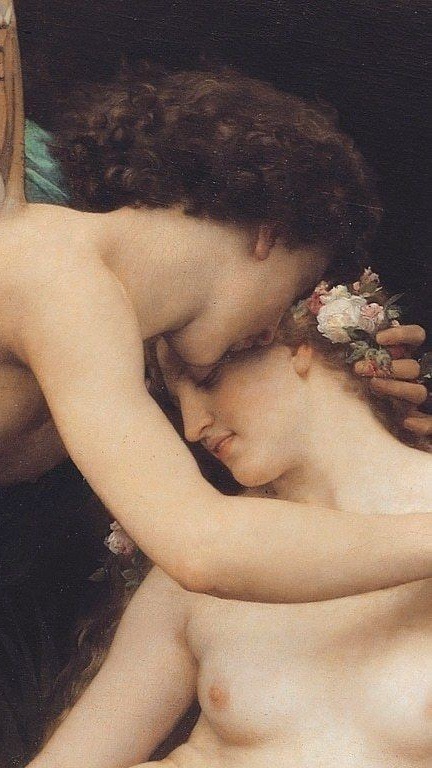
Heavenly, smiling Aphrodite!
I feel like weeping, I'm so obsessed with her.

#🏛🕯#devotional post#pagan#hellenic pagan#aphrodite#aphrodite deity#aphrodite worship#paganism#helpol#hellenic paganism#polytheism#hellenic polytheism#hellenic polythiest#polytheist
251 notes
·
View notes
Text
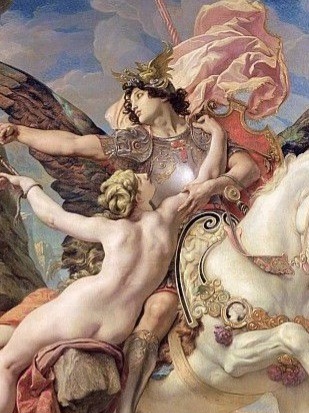
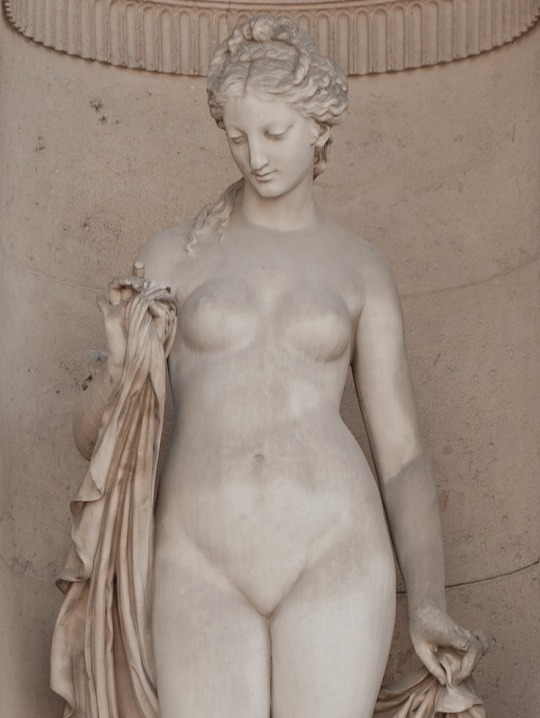

"Hail, my Lady, you who come here to this home. I will set up an altar, and I will perform for you beautiful sacrifices."
– Homeric Hymn to Aphrodite

#🏛🕯#devotional post#pagan#hellenic pagan#aphrodite#aphrodite deity#aphrodite worship#paganism#helpol#hellenic paganism#polytheism#hellenic polytheism#hellenic polythiest#polytheist
538 notes
·
View notes
Text



"My child, all your sins have not wounded my heart so painfully as your present lack of trust does, that after so many efforts of my love and mercy, you should still doubt my goodness."
– Diary of Saint Faustina

#🥀🕯#he is so beautiful#devotional post#jesus christ#christopagan#christopaganism#folk catholic#folk catholicism#faith#catholic#catholiscism
22 notes
·
View notes
Note
Do you consider the Gods to be synpathetic or empathetic ? Btw im so Glad i stumbled across this blog its so beautiful! ♡♡♡♡♡
Hi there, sunshine! ☀️
Awww, thank you so much! I'm so glad you enjoy the blog 🤗
This is a hard question. I'm going to assume I understand it correctly, but please let me know if I do not.
I think it depends on the context. I believe the gods are above most of the human experience. Most of the time, I believe they are sympathetic. They can understand why we do certain things and feel certain things, but I don't think they relate. They are so far above us, it would make sense that they can't relate to everything about the human experience, but that doesn't make them any less loving.
Then again, I think there are also things they understand on a personal, relatable level and then they can empathise with us. Things like loss, rage, intense joy, love.
I believe that intense, big feelings bring us closer to the gods. It's not that they have sunk down to our experiences in order to empathise, it is that we have had a glimpse of their experience. Feelings that feel as though they're too big for us and we might just burst, be it from love or rage or joy or grief, those are of the gods. That's why they can empathise in those cases.
But these are just my musings! Thank you so much for the interesting question, sunshine! Please feel free to reach out again in future.
Khaire! ☀️
#asks#answered asks#pagan#hellenic pagan#paganism#helpol#hellenic paganism#hellenic polytheism#polytheism#hellenic polythiest#polytheist
28 notes
·
View notes
Text
I only worship a few deities out of the Greek pantheon, Hestia and Zeus not being among them. However, as they are the goddess of the hearth and the Holy Father of the Hellenic pantheon, I still acknowledge them at the beginning of all my rituals. I use this quick prayer to both of them when lighting my altar candles and before continuing with the prayers to the deities I actively worship.
Hail Holy Hestia,
Thank you for warming our hearths and homes,
and for the blessings bestowed upon myself and my household.
You are honoured here.
Hail Holy Father Zeus,
Thank you for the blessings bestowed upon us through your personal favour and through your godly children.
You are honoured here.

#🏛🕯#pagan#hellenic pagan#paganism#helpol#hellenic paganism#zeus deity#hestia deity#polytheism#hellenic polytheism#hellenic polythiest#polytheist
24 notes
·
View notes
Note
No question just thank you for the amazing Posts that you make 🦋 your Blog feels so fresh and comforting and its helped me tremendously with learning about the Gods. 💓 also just so you know that Aphrodite loves you and shes ready to work with you when your ready i felt really guided by her to write this. May the Gods Bless you 💕🏛 Khaire!!
Hi there, sunshine! ☀️
Awww, thank you so so much!!
Honestly, I don't feel I do all that much. I just post what comes to mind, answer questions, and try to help others like I have been helped in the past. Running this blog is therapeutic to me, so I am really grateful for everybody who engages, follows, and sends asks!
And thank you so much for the word of encouragement, it really means a lot! I am starting to see Aphrodite's hand in many things and it feels like viewing the world through rose coloured lenses. Suddenly everything is softer and sweeter, even my ask inbox 🤗
So many blessings to you, sunshine!! I hope you have a wonderful day and that the gods are with you.
Khaire! ☀️
4 notes
·
View notes
Note
How did you become Christopagan? 💖
Hi there, sunshine! ☀️
My journey towards Christopaganism started with Mother Mary. She absolutely consumed my thoughts during the weeks leading up to the shift in my practice.
For context, I had been strictly Hellenic pagan for years, though had also been working with the Catholic archangels.
I am very much of the opinion that the Holy Mother led me to her son. It was honestly all consuming, my every thought somehow went to her. Not a day went by that wasn't like that. It was during those few weeks that I started researching the concept of Christopaganism. I had known it existed, I knew of Christopagan practitioners online, and I had also come across a similar concept while researching Alexander the Great. Apparently something similar, a blending between pagan and Christian faiths, occurred during the shift from BC to AD and continued for about 300 years AD – as far as I remember from what I read.
All that to say, I was aware of the concept in theory, but not in enough depth to know if it was right for me practically. I had done research but was still very much on the fence. What convinced me was a vision I saw that Christ had given me.
I won't go into too much detail as it is very personal, but I can tell you that in this vision I saw him walking towards me, almost like he recgonised that I was hestiant and he bridged that space for me. I saw his bare feet and the ends of his robes and I saw the blood from his forehead drip onto the dirt road where he was standing. He spoke to me as well.
After this, I began worshipping him. What I saw filled me with such awe and warmth, I'll never forget it.
It evolved from there and I'm very comfortable in my practice now that it's been a little while. It honestly surprised me how similar and easy to co-exist folk Christian and pagan practices are. It was very enlightening to see the two blend.
Thank you so much for asking, sunshine! Please feel free to send more asks in future if you have any.
Khaire! ☀️
#asks#answered asks#christopagan#pagan#christopaganism#paganism#polytheism#polytheist#folk catholic#folk catholicism
8 notes
·
View notes
Note
Hi! Can you please explain how you can work with both hellenic dieties and christian entities? And if you are anti-satanic pagan, how can you be christian pagan? Also Christianity and Paganism are really different...
Hi there, sunshine! ☀️
Of course I can go into it. I'd just like to preface this by saying that this is just what I believe and I'm not trying to convince others that it's the right way to believe.
I practice Christopaganism, in which I blend Hellenic pagan practices and some folk Catholic practices. I worship some of the Ancient Greek gods as well as Jesus Christ, and I venerate some of the Catholic saints. I base as much of my practice as possible on what was done in Ancient Greece. I do go to cathedrals for private worship but I do not attend mass.
I wasn't raised in a religious household of any nature which I think contributes to my heretical views on Christian practices. I do realise the heresy of my practice, which is why I prefer the word 'pagan' in reference to what I do and I don't mind when people call me a heretic. However, since I do not follow the church (hence the term 'folk Catholic'), what I do works.
In my masterpost, I say that I am anti-S*t*nic and that d*vil worship and paganism are very different. While yes, Christianity and paganism are also different, I don't believe that the worship of Jesus Christ and the worship of the old gods should be in conflict. They are both practices from the light. S*t*nism is not, which is my big aversion to it. I also wanted to put my stance on the matter out there because of the common misconception of paganism to be synonymous with d*vil worship, which couldn't be further from the truth.
From my perspective, paganism and Christianity actually share a lot of concepts; the idea of living your life in a spiritually clean way, living your life in a way that glorifies the gods/God, the aim of achieving a certain state in the afterlife (for Hellenic pagans it is avoiding eternal punishment in Hades, for Christians avoiding eternal damnation in Hell), etc.
(I have a post summarising some of these concepts in Hellenic paganism here)
Apart from the similarities in philosophies however, the old gods are also just good. In pagan pantheons, we don't have "evil" gods. Even gods of death or the Underworld are certainly not malevolent deities, in contrast to how pop culture likes to portray them. The gods guard over us, aid us, teach us, enlighten us, love us - and in return, we honour and worship them and live our lives in gratitude. I understand Christ as being viewed the same way. He provides us with blessings and guidance and love, and in gratitude we honour and glorify him.
To sum up, because I feel I've jumped a little all over the place, I don't view Christianity and paganism as being all that conflicting as they are both practices from the light and the good. In contrast, S*t*nism is the blatant worship of d*mons (even atheistic S*t*nists worship them without realising, let's face it) and glorification of evil, sin and spiritual filth. Paganism is also too commonly mistaken to mean d*vil worship, which makes the differences important to point out.
Thank you so much for asking, sunshine! Sorry for the wait, this was a really deep question and I had gone through this answer multiple times. I hope I've made sense as I don't really know how to word it differently. I do have another post where I talk about reconciling some mainstream Chrisitan ideals with being Christopagan here, if that fills any gaps.
Please feel free to send more asks in future or let me know if I haven't answered this question properly!
Khaire! ☀️
#asks#answered asks#pagan#christopagan#christopaganism#paganism#hellenic pagan#hellenic paganism#polytheism#polytheist
40 notes
·
View notes
Text
A Collection of Greek Keywords for Hellenic Pagans (kharis, miasma, etc.)
Kharis:
Kharis means 'grace' or 'favour' and it is in reference to the reciprocal nature of our relationships with the gods.
Liddell and Scott describe it as, "A grace or favour felt on the part of the doer but more frequently on the part of the receiver in the form or thankfulness and gratitude."
It essentially means a favour done in delight. This can be both the offering we give to the gods, and the favours and blessings the gods bestow upon us.
Kharis is both the action of offering and worshipping and also what is built between a worshipper and a god through the actions of offering and reverence. It can be used like this:
'Giving an offering to the gods is an example of kharis.'
Or:
'I have built up kharis with Apollo over the years.'
Khaire/khairete:
Khaire or khairete are words that mean 'hail', 'farewell', or 'blessings'.
It can be used to greet someone, either as hello or farewell (I use it at the end of some of my posts). It can also be used at the end of a prayer.
Khaire is used to address one person or god, and khairete is used to address a group.
Miasma:
Miasma means 'stain', 'pollution', 'defilement', or 'stain of guilt'.
It is a type of spiritual pollution that a person or a place can collect through either happenstance or deliberate action. It makes us spiritually unclean but there is no damnation involved in miasma and thus is not similar to sin. Sin is more comparable to agos, which is mentioned later.
We tend to collect miasma while going about day-to-day life, almost like getting our hands dirty while working. The stain it refers to is always one of a spiritual nature; miasma is a strictly spiritual concept.
It makes a person or place ritually impure, hence it is inappropriate to interact with the divine while in a miasmic state. The gods are said to reject the offerings of a miasmic person or to vacate a miasmic place until it is cleansed.
Human blood is also considered to be miasmic when spilled outside of battle, though this is not the case for menstrual blood (although I tend to avoid praying and doing rituals during that week anyway as I consider it to not be my cleanest state possible. I use this time to tend to my altar physically instead, cleaning it and reorganizing it).
Miasma is very common, everyone gets it, mostly due to plain daily life, though sometimes due to deliberate actions. Miasma can always be cleansed.
Sources of miasma include:
Death in the home - Pollutes the grieving and the home. People and home need to be cleansed before interacting with the gods or going to temple.
Birth - Because of the blood involved. Mother and baby are considered by traditional standards to be miasmic for three days postpartum and both are generally cleansed at five days postpartum.
Intercourse - Both parties are polluted by the act and must be cleansed before interacting with the gods or going to temple.
M*rder/m*nsl*ughter - This collects both miasma and agos. The m*rderer becomes miasmic, and a place can become miasmic if a m*rderer is free and unpunished there. This does not apply to blood spilled in battle.
There is a line in Hesiod's Works and Days that refers to the action of cleansing oneself of miasma before interacting with the gods. It reads, "Never pour a libation of sparkling wine to Zeus after dawn with unwashen hands, nor to others of the deathless gods."
Khernips:
Khernips means 'handwash', or 'lustral water'.
It is basically Hellenic holy water. It is used to purify ourselves of miasma before interacting with the gods.
It can be made by dropping burnt herbs or laurel leaves (bay leaves) in clean water, or by dropping a lit match in clean water. Simply washing our hands in plain water can work symbolically as well if done with the specific intention of purifying oneself.
Agos:
Agos means 'curse', 'pollution', or 'abomination'.
It can be considered as a step up to miasma and, while not quite the same, it could also be considered comparable to sin. It is brought about through deliberate actions and it is very difficult, if not impossible, to cleanse. Agos can also invoke the divine wrath of the gods, so it does involve a form of damnation
Some things that cause/invoke agos include:
Having intercourse inside a temple
Temple robbing
M*rder
Bloodshed inside a temple or on sacred grounds
Broken xenia
The refusal to properly bury a family member or a soldier (even an enemy soldier)
K*lling someone who is under the gods' protection
Offering human blood to the gods (due to its miasmic nature)
Agos is hardly as common as miasma, so it is not something the general practitioner should worry about.

#🏛🕯#hellenic pagan#hellenic paganism#pagan#paganism#helpol#hellenic polytheism#hellenic polythiest#polytheism#polytheist
540 notes
·
View notes
Text


Dear Lord, Jesus Christ, as we celebrate the day of your birth, let us reflect on the journey of your earthly parents.
Lord, help us to love our own parents as you love yours.
Help us to pray for those who are alone or in pain during this your season. Break our hearts for what breaks yours.
Help us to see with your eyes and serve with your hands, and bless us with your presence.
Amen.

#🥀🕯#christopagan#christmas#advent season#jesus christ#jesus#christopaganism#merry christmas#pagan#paganism#yeshua#mother mary#virgin mary#hail mary#folk catholic#folk catholicism#saint joseph
33 notes
·
View notes
Text



Hail Apollo;
God before whom princes and poets kneel.
I have no words to describe how beautiful you are and how beautiful my life is because of you. Every day, I am blessed by you. Thank you for gifting me with your patronage and your love, and I pray that my love for you is known in return.

#🏛🕯#devotional post#apollo#apollo devotee#pagan#hellenic pagan#apollo worship#paganism#hellenic paganism#helpol#hellenic polytheism#hellenic polythiest#polytheism#polytheist#apollon#apollon worship
815 notes
·
View notes
Note
How do you reconcile the mainstream Christian ideals of not worshipping any other god than YHWH/trinity with Hellenic paganism?
Hi sunshine! ☀️
I see this topic debated a lot and answers vary. I think one factor that makes this reconciliation easier for me is that I was raised in an athiest/agnostic household. I was then purely Hellenic pagan for a few years so I have a slightly different – some would say heretical – view of Christian/Catholic practices. For context, I am now Christopagan. I worship Hellenic (Greek) pagan deities and Jesus, and I work with some of the saints.
To my knowledge, the verses that touch on this subject are Exodus 20:3, "Thou shalt have no other gods before me", and Exodus 22:20, "He that sacrificeth unto any god, save unto the Lord only, he shall be utterly destroyed".
Now personally, I don't believe that the Bible is the word of God. I believe that the Bible is the word of man inspired by God. It is similar to how we understand the Greek myths as being written by human beings, portraying how they and society of the time interpreted the gods.
However, while man may be divinely inspired, we are also flawed. It is no secret that the church constantly seeks power, and the Bible was written during a time when paganism was the church's biggest competitor. While it was compiled roughly 200-400 years before the official outlawing of paganism, this was still a time when the church would have sought to diminish the number of pagan followers. Lines like those from Exodus were, I think, written with the agenda of turning people away from pagan faiths.
A way for the church to dominate pagan religions was to demonise the practices and to instill fear in the people, which we continue to see today. I have no problem with the Bible and I would never disrespect it, but I believe we must consider its historical context and recognise that it is, in part, religious propaganda. That's the stance I take, at least.
There are parts of the Bible I take more to heart than others. Lines that sound more like propaganda than something to bring you closer to God and to Jesus, I acknowledge as a part of history and something to be left in the past. The Greek myths are also not perfect and depict many values that are outdated and strange to us today, but again, those are aspects to be understood historically and interpreted accordingly.
This is just what I believe though and how I personally view things. Debate is welcomed, as long as it is respectful. Thank you so much for asking, sunshine!
Khaire! ☀️
#asks#answered asks#christopagan#christopaganism#pagan#paganism#polytheist#polytheism#folk catholic#folk catholicism
92 notes
·
View notes
Note
Does Hellenism have a Holy Book? Or like a Bool with Rules,Customs,Offerings etc?? Kinda like a Bible :>
Hey there, sunshine! ☀️
Hellenic paganism doesn't have one single piece of holy scripture like Abrahamic religions do. Our texts are a little more scattered. We have the Homeric Hymns and the Orphic Hymns, each are a collection of hymns and prayers to the gods. There is also Hesiod's Theogony, an epic 1000+ line poem that details the genealogies of the gods, and also Hesiod's Works and Days, which is more on the subject of morality and farming, but includes good lessons on how to interact with the gods.
You can buy these online in the forms of physical books, but there should also be free pdf versions of them out there, as well as websites that have the entire collection of hymns written out.
As for a text that gives instructions regarding customs and offerings, there isn't one set, singular text that I know of. We learn from historical and archaeological research, from writings like those listed above, and from each other. There are modern books on Hellenic paganism and its practices written by scholars that you could look for. Some are expensive though, and if you do enough digging on the internet yourself, you should be able to come up with some information.
I could teach you a couple basics right now.
1. Be clean when praying
There is a line in Hesiod's Works and Days that reads, "Never pour a libation of sparkling wine to Zeus after dawn with unwashen hands, nor to others of the deathless gods."
This line refers to the custom of washing our hands before giving offerings or libations to the gods. There is a water we make, I think with burnt herbs in it, called khernips that is used to clean our hands. You don't have to use it though (I don't) and simply washing your hands normally works just as well. I believe it also symbolises being generally clean. Being ready for your day and in a good state when presenting yourself to the gods is important, I think.
2. How to pray
Here is a post I found about how to pray in Hellenic paganism. I found it very helpful and I've been pagan for years now, so I think it could help you. (Link)
Also a note, we have a version of "amen" that can be said at the end of prayers, if that sense of closing off makes prayer easier for you. I know it did for me. The word is "khaire", and as I understand it, it means "blessings" or "good wishes". You can say it to someone or to close a prayer.
EDIT: "Khaire" or "khairete" can be used. They both mean "hail" or "farewell" or "blessings". "Khaire" is to address one, and "khairete" is to address a group.
3. Ouranic and chthonic
Quick run down on ouranic and chthonic. Ouranic means celestial, and it is how we refer to gods who live on the surface and in Olympus. These include Zeus, Hera, Apollo, Aphrodite, etc. Chthonic means underground, and it is used to refer to gods who live in the Underworld. These are Hades, Persephone (half the year at least), and Thanatos.
In Ancient times, offerings to ouranic deities were either libations poured to them in a bowl or cup or the smoke of burning food. It is believed that the essence of the food would be carried up to the gods through the smoke. Looking at this in modern day, incense smoke is an excellent offering and we can leave food offerings and libations out on the altar along with a lit candle.
Offerings to chthonic deities usually went in the ground, so that it may be absorbed through the earth and reach the gods in the Underworld that way. Usually libations were poured out on the ground and food offerings buried in a dug hole. If you have a garden or pot plants and your offerings are safe for them then the practice can be replicated that way. I've also seen people use boxes on the altar, putting offerings inside and closing it, symbolising burying it.
Or you can simply treat chthonic deities the same as ouranic deities when giving offerings. Whatever works best for you, but this is what was done traditionally.
4. Read the myths
Read the myths of the gods you wish to worship. You learn a lot and can come to your own conclusions about your worship by learning about their stories and roles in society.
This may all seem like a lot now, and not having one singular piece of decisive scripture can be challenging if you're used to having one, but it does get easier. You'll settle and find your feet. Knowing these things will become second nature, and you will build your own practice based on them. No one's worship looks the same, especially with paganism, and that's as it should be.
Thank you so much for asking, sunshine! So sorry for the long response, but I figured I'd rather leave you with some starting points and things to investigate. Please feel free to send another ask or dm me in future if you have any more questions.
Khaire! ☀️
#answered asks#asks#pagan#hellenic pagan#paganism#hellenic paganism#helpol#hellenic polytheism#hellenic polythiest#polytheism#polytheist
285 notes
·
View notes
Text
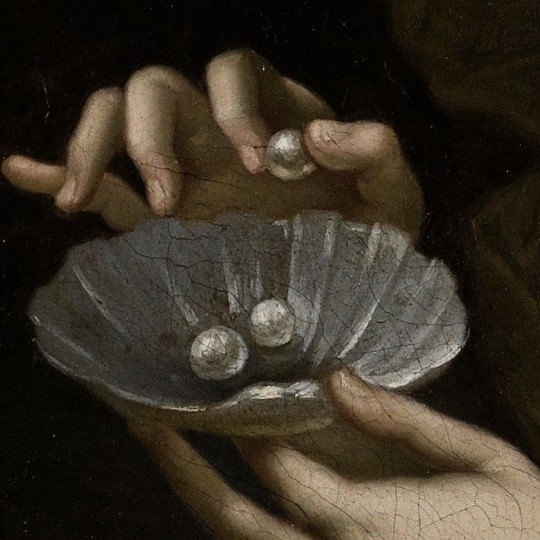

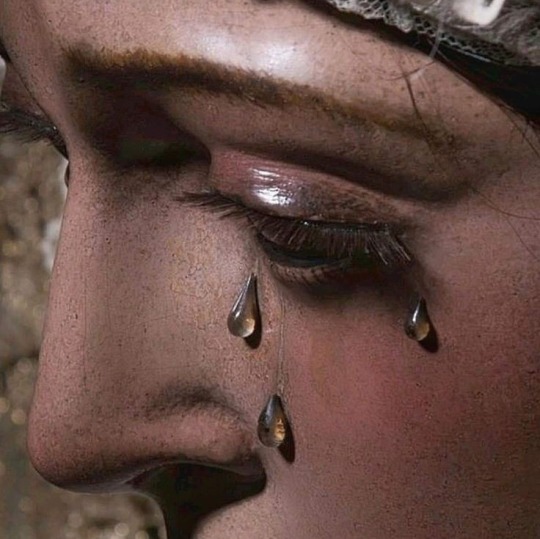

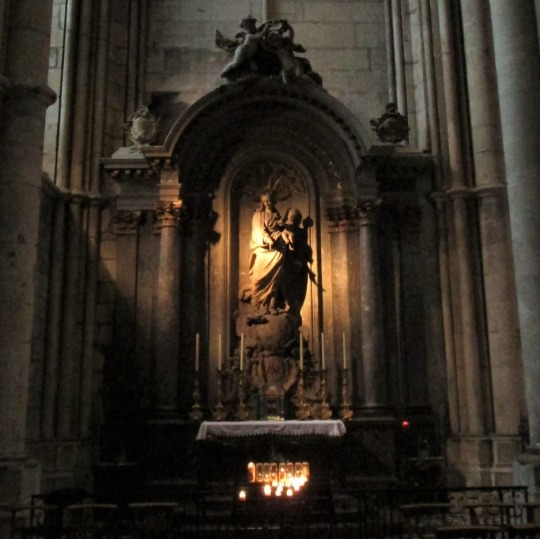




Holy Mary, Mother of God,
Pray for us sinners, now, and at the hour of our death.
Amen.

#🥀🕯#devotional post#christopagan#mother mary#virgin mary#hail mary#christopaganism#pagan#paganism#catholic#catholiscism#folk catholicism#folk catholic#blessed mother mary#the blessed mother#the blessed virgin mary#christian witch
601 notes
·
View notes